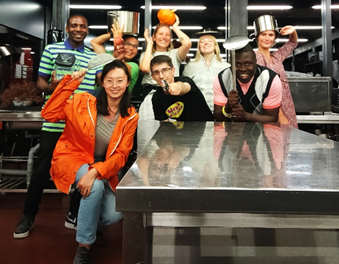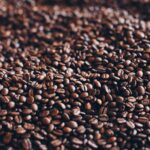Mincemeat or Mince ‘no’ meat. A Christmas Blog

It’s that time of the year again! Last year, we embarked on a journey to calculate the nutrient content of your Christmas dinner. Well, hopefully, that extra roast was well accounted for, even if you swiped it on the sly. Here is the link to last Christmas’s blog: Minced meat or Mincemeat? https://fnnbri.quadram.ac.uk/2020/12/minced-meat-or-mincemeat-a-christmas-blog/
This year, with heated discussions on the 2021 United Nations Climate Change Conference (COP26), our Christmas gift to you is a dish that you can prepare in a more environmentally friendly way.
Hence, the story of Mincemeat continues. Mincemeat is a mixture of chopped boozy, spiced fruit that is widely popular in the UK. As you’ve probably noticed on the supermarket shelves, it is most often baked into pies and served around Christmas. Mincemeat was first conceived as a method of preserving meat with antimicrobial spices. But by the turn of the 20th century, the meat began to be replaced with suet, and the spiced fruit took center stage. These days, suet is commonly swapped out in favour of butter.
Environmentally, however, the raising of dairy cows results in a significant carbon footprint for butter production. An ideal substitution is coconut oil to maintain the delectably classic minced(meat) pie texture while limiting the environmental impact.

A vegan mince pie recipe with coconut oil can be found on the BBC good food website: https://www.bbcgoodfood.com/recipes/vegan-mince-pies
But as is often the case, we cannot have it all our way. Both butter and coconut oil are nutritional “bad boys” regarding their high content of saturated fat. Here are the figures per 100g:
- Unsalted butter has 52.09g saturated fat /100g
- Coconut oil has 86.50g saturated fat /100g
(Values obtained from McCance and Widdowson’s Composition of Foods and the Integrated Dataset (CoFIDS) https://quadram.ac.uk/UKfoodcomposition/login-register/)
The UK health guidelines recommend that the average male aged 19 to 64 years should eat no more than 30g of saturated fat a day, and the average female aged 19 to 64 years, no more than 20g of saturated fat a day. The recommendation promotes healthy blood cholesterol and reduces the risk of heart disease.
The saturated fat content for both the vegan and non-vegan mince pie is around 10g per serving. So, if we’re to measure in meaningful units, that’s an average of 2.5 mince pies per person per day before the daily quota of saturated fat is spent. Remember, all the other Christmas goodies count towards this figure. But let’s not be too much of a Scrooge! It’s Christmas; treat yourself to a mince pie or two. They’re only around for a few months. Perhaps this year’s festive treat will bring a coco-nutty twist to a centuries-old Christmas classic.
Merry Christmas from Food Databanks!
Blog author: Dr Liangzi Zhang









